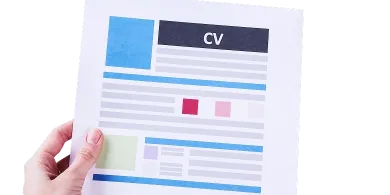Table of contents
Nursing jobs are growing fast, and the competition is just as strong. According to the U.S. Bureau of Labor Statistics, the field will add about 194,500 registered nurse roles every year through 2033. That’s more openings than many other professions, and it shows how important nursing staff are in every healthcare setting. (bls.gov)

A targeted great resume objective is one of the quickest ways to make a strong impression. It shows who you are, what you bring to the job, and why you’re a fit with your nursing experience before anyone reads further.
In this guide from a professional resume writing service online, you’ll learn:
Ready to get noticed? Let’s dig in.
An RN resume objective is a short, clear statement you put right at the top of your resume. Think of it as your personal headline. It tells employers what you want to do next and why you’re a great fit.
In plain terms, it’s where you share your career goals and the skills you’re ready to bring to the job. This part is especially useful if you’re a new graduate, changing specialties, or returning to nursing after time away.
So, what is a good objective for nursing resume? It is specific, concise, and tailored to the role. It mentions your credentials and shows how you’ll contribute to the team. For example:
“Licensed RN with a passion for pediatric care, seeking to join ABC Hospital’s children’s unit to deliver compassionate, evidence-based nursing.”
Here’s how a profile statement compares to a summary:
| Profile Statement | Resume Summary |
| States career goals and key skills | Focuses on past experience and big achievements |
| Best for new grads or career changers | Best for experienced nurses |
| Usually 1–2 short sentences | Usually 2–4 sentences |
Expert Insight:

“A focused objective is like a headline for your resume, it guides the reader’s expectations and sets the tone.” – Sarah Johnston, Healthcare Executive Resume Writer
When done right, your career goal makes your resume feel personal and purposeful, helping you stand out in a stack of applications.
When you apply for a nursing job, you don’t have much time to impress. 4 out of 10 hiring managers spend less than a minute looking over each resume. That’s barely enough time for a quick scan.
This is precisely why having a strong RN resume objective is so important. A good objective:
Think of it as your opening line. It grabs attention and makes the reader want to keep going. In a pile of resumes, that small edge can be the difference between getting called in or getting passed over.
There are certain times when adding an objective to your nursing resume really pays off.
If you’re a new graduate fresh out of one of the many nursing programs, an objective helps you share your goals and show you’re ready to learn.
If you’re moving from another field, maybe you were a certified nursing assistant and are now applying for RN roles, it explains how your past experience working with patients makes you a compassionate nurse ready for the next step.
An objective also works well if you’re aiming for a specialty like ICU, pediatrics, or oncology, or if you’re returning to nursing after some time away.
Quick Tip: If you have more than 5 years in the same specialty, skip the objective and use a summary instead. This highlights your track record and gives you more room to show off your expertise.
Adding the right objective helps your resume feel clear and focused, exactly what hiring managers look for.
Writing a powerful objective statement doesn’t have to feel overwhelming. Follow these simple steps to create something ready to grab attention.
Begin by naming your role so there’s no confusion about who you are.
Example: Registered Nurse with BSN
Include any important licenses or certifications right away. These show you have the right training and qualifications.
Example: Licensed in New York, ACLS-certified
Add a line about your clinical experience or educational background, like a degree in nursing, to show what you’ve already accomplished.
Example: More than 2 years working in acute care settings
Wrap up by stating what you’re aiming for and how you plan to contribute to the team.
Example: Seeking a position in a Level 1 trauma center to apply my critical care skills
Here’s an easy template to build your statement:
| Component | Example Phrase |
| Professional Title | Registered Nurse |
| Key Credentials | ACLS, BLS Certified |
| Experience or Education | 2 years’ experience in cardiac nursing |
| Goal | Looking to join a Magnet-recognized hospital |
Make sure your profile statement checks these boxes:
According to best nursing resume experts, a thoughtful objective can quickly show hiring managers that you have the right mix of skills for resume success, the nursing knowledge to handle the role, and the motivation to grow.
By following these steps, you’ll create an objective that feels professional, personal, and ready to open doors.
Seeing real examples can make it much easier to figure out how to write a nursing resume objective that feels clear and personal. Here are different samples you can tweak to fit your own path:
“Recent BSN graduate and licensed RN ready to deliver excellent patient care in a fast-paced hospital. Hoping to join Mercy General’s Med-Surg team to build skills and grow into a confident, dedicated registered nurse.”
This shows you’re eager to learn and contribute right away.
“Critical care RN with 5 years as an ICU nurse and CCRN certification. Looking to bring advanced life support skills and strong nursing judgment to Baylor University Medical Center’s trauma unit.”
This one highlights deep experience and specialized training.
“Pediatric RN with 3 years working in children’s hospitals, BLS and PALS certified. Committed to delivering family-centered care and supporting young patients in a team environment.”
Clear, focused, and shows passion for pediatric care.
“Certified EMT moving into nursing with an ADN. Excited to apply emergency response experience and patient advocacy in an acute care RN role.”
This example bridges your past role with your new career goal.
Quick Tip: When you put your career overview together, keep it short (1–2 sentences are plenty). Use active words and tailor it to each job so your professional resume feels specific, not generic.
Whether you’re a new grad or an experienced nurse, the right nursing objective can set the tone and show you’re serious about the role. A few clear lines can make your application feel confident and ready to deliver excellent nursing care.

To make your CV stand out, you need to know what hiring managers and automated algorithms are looking for. One of the best methods to stand out is by using appropriate keywords that align with common nurse responsibilities and expectations.
Research shows that words like patient care nurse, critical thinking, compassionate, and evidence-based are some of the most searched terms in nursing applications. According to Jobscan, including keywords that fit the job description can boost your chances of passing Applicant Tracking Systems by up to 70%.
Here’s what an expert has to say:
“Applicant tracking systems scan for keywords and phrases, missing them can mean your resume never gets seen.” – Lisa Rangel, Certified Nurse Resume Writer
Whether you’re a new graduate or a nurse with excellent clinical skills and years of experience, adding targeted words can make a real difference.
If you’re not sure how to start, look at a resume template or browse nursing resume objective examples to get ideas. Then, blend those important terms naturally into your statement. This small step can help you stand out and get one step closer to landing the role you want.
Even the most qualified nurses can make small mistakes that hurt their chances. Here are the pitfalls you’ll want to steer clear of, and how to fix them:
Saying “Registered nurse seeking a job to use my skills” won’t grab anyone’s attention.
✅ Tip: Be clear about the role you want. For example, mention if you’re an enthusiastic registered nurse applying to a specific unit or specialty.
A long-winded paragraph is easy to skip.
✅ Tip: Keep your objective short, one or two sentences is enough.
Without the right words, your resume could get stuck in an applicant tracking system.
✅ Tip: Use terms from the job posting, like clinical nurse, patient-centered care, or evidence-based practice.
Sending out the same text for every job makes you look unprepared.
✅ Tip: Adjust your objective for each employer to show you care about their specific needs.
Visual Table of Mistakes
| Mistake | Why It Hurts |
| Vague statements | Doesn’t show direction or focus |
| Long paragraphs | Hard to read quickly |
| No credentials | Makes you look less qualified |
If you’re wondering what is a good objective for a nursing resume, look at resume examples and aim for something specific. Whether you have decades or just a few years of experience providing care, a sharp objective can help you stand out right away.
Nurse recruiters read stacks of resumes every day, so a few smart tweaks can help you stand out. Here’s what they recommend:
A little extra effort in resume writing can go a long way. These tips can help you present yourself as a nurse with strong focus and purpose.
“We look for candidates who know exactly where they want to be and why they’re a fit for our unit.” – Recruiter, Mayo Clinic
A well-written objective is one of the fastest ways to get a hiring manager’s attention. In just a few lines, you can show you’re serious about your career, confident in your nursing skills, and ready to make a difference.
Whether you’re applying for staff RN jobs or aiming to grow into a nurse practitioner role, a targeted statement helps you stand out in a sea of applicants. It shows you understand the value of strong nursing interventions and have a clear plan for where you want to go.
Use the examples, tips, and checklists you’ve seen here to create an objective that feels honest and specific to you.